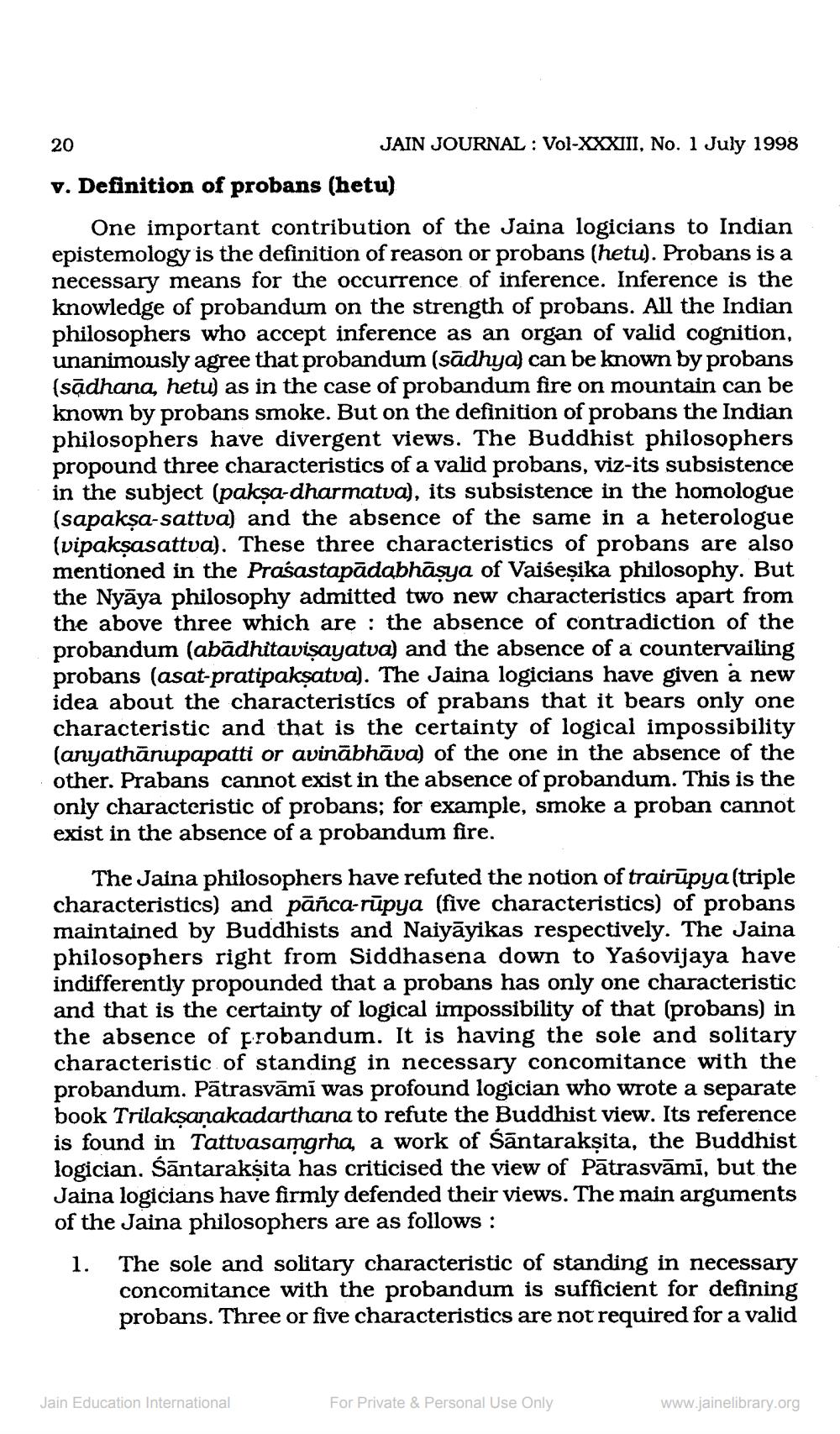________________
20
v. Definition of probans (hetu)
One important contribution of the Jaina logicians to Indian epistemology is the definition of reason or probans (hetu). Probans is a necessary means for the occurrence of inference. Inference is the knowledge of probandum on the strength of probans. All the Indian philosophers who accept inference as an organ of valid cognition, unanimously agree that probandum (sādhya) can be known by probans (sadhana, hetu) as in the case of probandum fire on mountain can be known by probans smoke. But on the definition of probans the Indian philosophers have divergent views. The Buddhist philosophers propound three characteristics of a valid probans, viz-its subsistence in the subject (pakṣa-dharmatva), its subsistence in the homologue (sapakṣa-sattva) and the absence of the same in a heterologue (vipakṣasattva). These three characteristics of probans are also mentioned in the Prasastapādabhāṣya of Vaiseṣika philosophy. But the Nyaya philosophy admitted two new characteristics apart from the above three which are the absence of contradiction of the probandum (abādhitaviṣayatva) and the absence of a countervailing probans (asat-pratipakṣatva). The Jaina logicians have given a new idea about the characteristics of prabans that it bears only one characteristic and that is the certainty of logical impossibility (anyathānupapatti or avinābhāva) of the one in the absence of the other. Prabans cannot exist in the absence of probandum. This is the only characteristic of probans; for example, smoke a proban cannot exist in the absence of a probandum fire.
JAIN JOURNAL: Vol-XXXIII, No. 1 July 1998
The Jaina philosophers have refuted the notion of trairupya (triple characteristics) and pāñca-rūpya (five characteristics) of probans maintained by Buddhists and Naiyāyikas respectively. The Jaina philosophers right from Siddhasena down to Yasovijaya have indifferently propounded that a probans has only one characteristic and that is the certainty of logical impossibility of that (probans) in the absence of probandum. It is having the sole and solitary characteristic of standing in necessary concomitance with the probandum. Pātrasvami was profound logician who wrote a separate book Trilakṣaṇakadarthana to refute the Buddhist view. Its reference is found in Tattvasamgrha, a work of Santarakṣita, the Buddhist logician. Śantarakṣita has criticised the view of Patrasvami, but the Jaina logicians have firmly defended their views. The main arguments of the Jaina philosophers are as follows:
1. The sole and solitary characteristic of standing in necessary concomitance with the probandum is sufficient for defining probans. Three or five characteristics are not required for a valid
Jain Education International
For Private & Personal Use Only
www.jainelibrary.org




